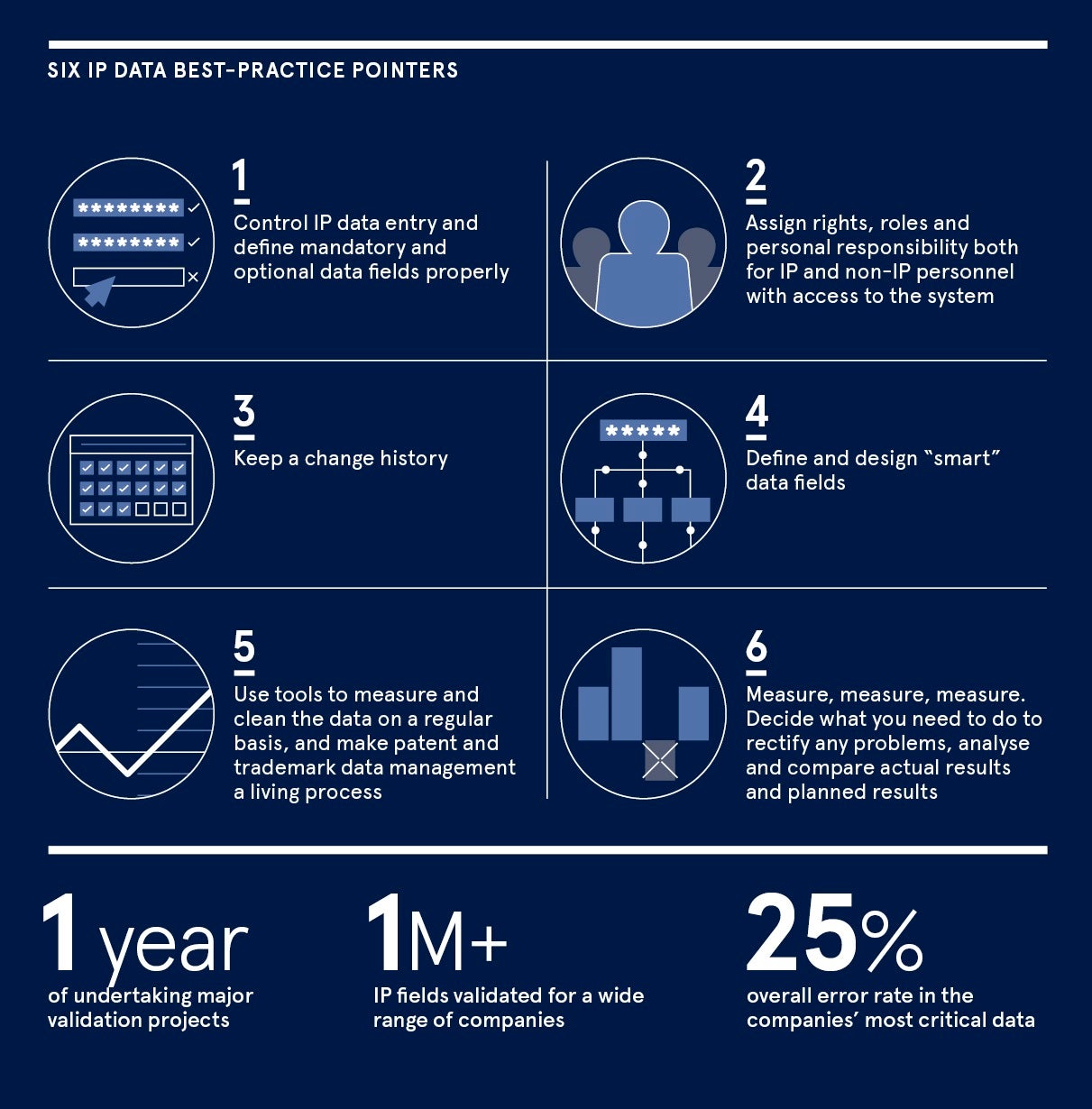Imagine if the next big smartphone maker launched a product and let everyone copy it. Unlikely. Its value would collapse from £1 billion to £1 faster than an emoji can smile. If innovation creates the bricks and mortar to build any business, intellectual property (IP) forms its foundations. Data holds it all together. The tiniest of errors in an application number, date or description may invalidate a patent.
“A patent could be worth millions and if a mistake ends with a lawsuit, it could be very expensive,” says Niket Agrawal, regional director of professional services at Anaqua. The end-to-end innovation and IP management software and services provider serves more than 50 per cent of the top 25 US patent filers and top 25 global brands, as well as many of the world’s leading law firms.
Making a mistake can be expensive, through lost sales, wasted staff time or legal fees. Patent litigation in US district courts ranged from $700,000 (£540,000) to $4 million (£3 million) in 2019, according to the American Intellectual Property Law Association Report of the Economic Survey.
We’ve helped companies who could have lost a patent through dirty data
Over the course of a year, Anaqua’s data validation team reviewed more than one million IP fields for a wide range of companies. The team found an average 25 per cent error rate in the companies’ most critical data over just 12 months. One company’s suspected 10 per cent error rate turned out to be 40 per cent after Anaqua validated their portfolio.
“We’ve helped companies who could have lost a patent through dirty data,” says Agrawal. “A misplaced number in an application document or renewal date could be very costly. There’s also the risk that incorrect data could cause a company unknowingly to maintain someone else’s patent, wasting money on payments and fees that aren’t theirs.”
Bad data is a persistent termite. It can eat into any process flows, from IP creation and portfolio management to enforcement, exploitation and risk management. Everyone who wants to protect an IP asset, including the inventor, patent committee and patent board, is responsible for keeping the pest out. Dirty data can infest all forms of IP, such as patents, trademarks, copyright, designs and trade secrets.

Clearly many companies could be much more careful in handling IP data, even though its importance is recognised universally. Patent filings around the world exceeded 3.3 million in 2018, according to the World Intellectual Property Organization, a 5.2 per cent increase on figures for 2017.
Faulty data can also have a major impact on other, non-IP areas of business, such as marketing. “IP analytics link to software so that lets you see what your competitors are doing and can help you to get a competitive edge,” says Agrawal.
“If your internal data is dirty, your entire plan is going to be off. A crack in your data foundations could destroy your entire strategy or put you way behind. If data is worth keeping, it’s worth keeping it clean. No one wants to give away their money or their rights.”
For more information please contact info@anaqua.com or visit www.anaqua.com

